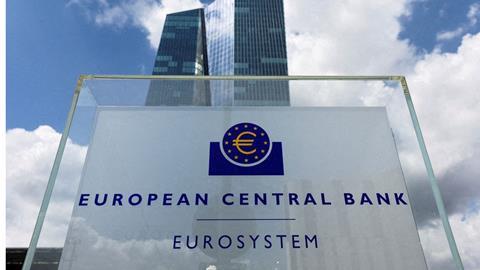The European Central Bank (ECB) has decided to hike interest rates again, taking the overall deposit rate to 4%, but debate is rife over whether it also signalled the cycle could be coming to an end.

The ECB has three interest rates. In a statement, it said: 'Inflation continues to decline but is still expected to remain too high for too long.'
'The Governing Council is determined to ensure that inflation returns to its 2% medium-term target in a timely manner. In order to reinforce progress towards its target, the Governing Council today decided to raise the three key ECB interest rates by 25 basis points.'
Accordingly, the interest rate on the main refinancing operations and the interest rates on the marginal lending facility and the deposit facility will be increased to 4.50%, 4.75% and 4.00% respectively, with effect from 20 September 2023.'
It also said based on its current assessments, the key ECB interest rates have reached levels that, maintained for a sufficiently long duration, will make a substantial contribution to the timely return of inflation to the target.
'The Governing Council’s future decisions will ensure that the key ECB interest rates will be set at sufficiently restrictive levels for as long as necessary.'
Looking for signs of what next, many have taken some of these statements as a signal there might be no further rises in interest rates for the forseeable future.
Though the rate rise is probably overall bad news for the real estate industry, that intepretation could count as a "reason to be cheerful" if correct.
However, almost immediately, a shadow was cast over that as Christine Lagarde, president of the ECB, said in a press conference, 'we cannot say rates have reached their peak'.
Mark Wall, chief european economist at Deutsche Bank research, said the ECB was signalling a 'lingering pause' but he also said: 'The ECB has retained the option to hike further if necessary. There is no declaration of victory on inflation.'
Interest rates dominated the conversation at last week's EPRA annual event in London. Read here.
The speed of rate rises has taken many industry practioners by surprise, with the deposit rate at 3.75% until the ECB voted for a further 0.25% increase on Thursday. The first rise came in July last year. They are now at their highest level in the Eurozone for 22 years.
The decision was being watched closely around the world, and attention will now turn to the US.
In the wake of the ECB call, the euro fell against the dollar.
Wael Makarem, senior market strategist - MENA at online trading firm, Exness, said: 'The euro has been declining since its peak in July, weighed by the deteriorating economy in the euro area while its US equivalent maintained a solid posture.'
'In this regard, strong US economic data could continue to fuel some concerns about a potential interest rate hike in the US this year. After the ECB’s decision, traders’ attention will turn to the Federal Reserve’s meeting next week.'










